Survivalists and preppers share a handful of similar goals and one of them is to survive imminent disasters. They are prepared in cases of natural disasters, economic collapse, or any catastrophe that’ll make the normal way of living impossible. But what makes them different from each other?
One major difference between a survivalist and a prepper is their preparation style. Preppers stock up on as many supplies that will last for months while survivalists don’t. Instead, survivalists will try to survive using their acquired skills and available resources in their surroundings.
Still not sure which one are you? Read on to find out the other key differences between survivalists and preppers.
Quick Navigation
- What Is A Survivalist?
- What Is a Prepper?
- What’s the Difference between a Survivalist and Prepper?
- What Are the Similarities?
- Which Is Better? A Survivalist or Prepper?
- Concluding Thoughts
What Is A Survivalist?
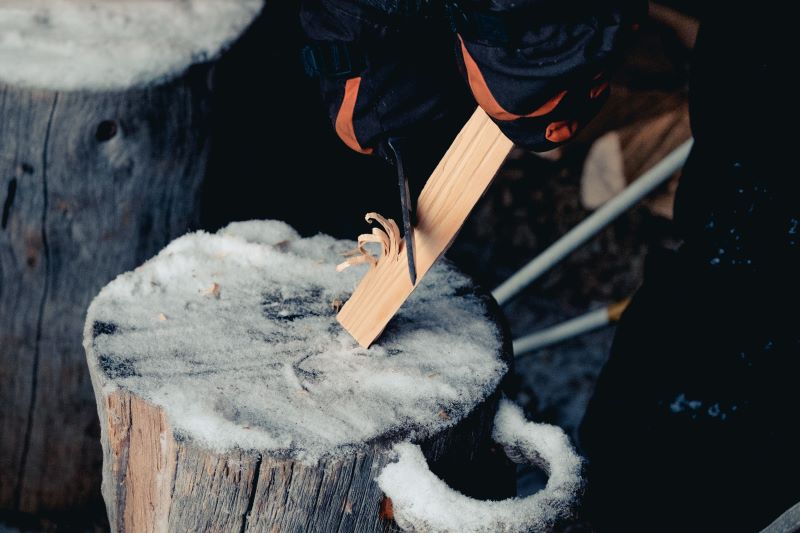
Survivalists are people who practice and advocate survivalism.
They can survive natural disasters, political crises, nuclear war, and economical collapse even without stockpiling food and supplies. They have the skills to survive wherever they are, whatever they do, even with the limited resources they have.
What Does a Survivalist Do?
Survivalists learn skills and acquire knowledge in order to survive in whichever situation they may end up in. They do not aim to stock supplies because they believe that less is more. They know that they can survive regardless of the situation they end up in.
Survivalist beliefs revolve around the idea that less is more. Furthermore, they focus on learning the skills and knowledge that will enable them to survive by their own means, so they continue functioning in case of a “doomsday scenario”.
What Are the Skills of a Survivalist?
If you’re thinking of becoming a survivalist, you should learn the skills and the knowledge of becoming one. It is best to start practicing at home to prepare yourself in case doomsday arrives.
If you want, you can join survivalist retreats or survivalist communities. You can also visit a store selling survivalist supplies to give you an idea of what the lifestyle is all about.
You must be prepared physically, mentally, and emotionally. Basically, most survivalists focus on learning outdoor survival skills and practicing a self-sufficient and self-reliant lifestyle for long-term survival.
Not only is this applicable for doomsday, but for camping and other outdoor activities as well. Here are the skills survivalists tend to have:
Fire Building
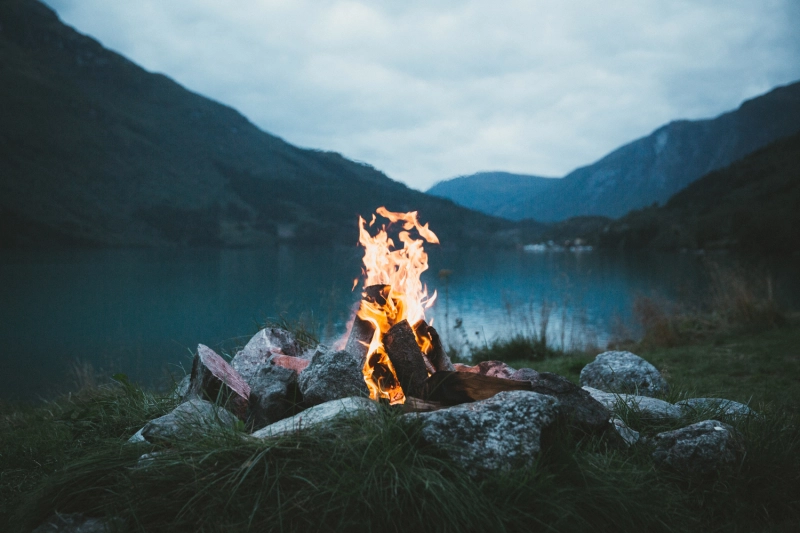
Building a fire is a necessity that survivalists should learn. You need a fire to cook food, keep you warm, a source of light, and ward off predators. As a survivalist, you have to think of ways to build fire even without a match or lighter.
But using sticks, wood, and rocks that you find in your surroundings. You should learn how to create a fire bed, and gather wood, tinder, and kindling.
Look for a Clean Water Source
Water is a necessity for drinking, cooking, and cleaning yourself. You should not run out of clean water when outdoors and naturally, lakes or rivers are your best option.
However, it is not potable, so you need to make sure to purify it. You can purify it by filtering the water using your shirt and by boiling it. Boiling water is the safest purification method.
Food Hunting
Survivalists prepare for food foraging by learning what are edible wild plants and how to hunt and cook meat sources. You can start by learning what plants are edible by reading a botanical book, and learning what they look like so you can easily identify them.
Also, hunting and fishing are necessary skills a survivalist should learn.
Growing Crops
As a survivalist, you know that edible plants or food sources may be limited. That’s why survivalists learn how to grow crops for consumption. If you’ve been gardening and growing plants in your backyard, that’s a survivalist skill right there.
Building a Shelter
Your fort-building skills when you were young will be put to good use if you want to survive outdoors. Learn how to build a shelter with the natural resources available. If you have a tent, then good.
But if not, you should learn how to construct makeshift homes using rocks and tree branches. Included in this skill, learn how to make a makeshift bed as well.
Creating Weapons
You need to protect yourself as part of disaster preparedness. You need to protect yourself from wild animals or other people trying to steal your belongings. Survivalists need hunting weapons and protection.
If you don’t have guns and ammunition, the easy weapons to create are a makeshift slingshot, a bow and arrow, and a spear.
Basic First Aid
Getting injured, minor cuts, and getting sick are inevitable, especially in outdoor survival situations. That’s why basic first aid skills are a necessity. These include treating wounds, insect bites, and burns. The skill also includes utilizing herbal plants as a treatment remedy.
Some modern survivalists invest in survivalist gear, a first aid kit, and other supplies that are light and easy to carry. There are also survivalist stores where you can purchase the basic supplies needed.
What Is a Prepper?
A prepper is a person who makes preparations for doomsday scenarios by stocking food, ammunition, tools, toiletries, and other supplies. Unlike survivalists, doomsday preppers believe that more is better.
Some preppers also create bunkers where they stock their supplies and use them as their shelter. While some also have bug-out vehicles stocked up with supplies and ready to go in case of disaster.
What Does a Prepper Do?
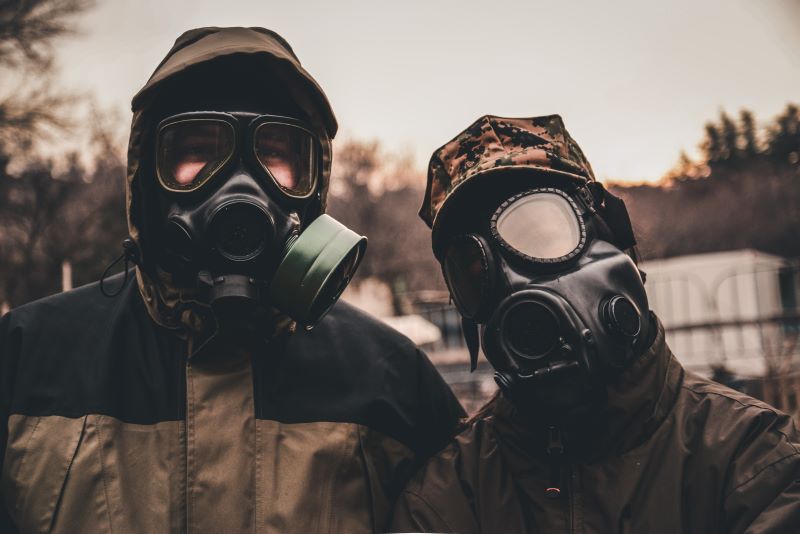
Basically, a prepper gathers food and supplies that may last them for months. Preppers also establish a communication channel, build bunkers, and save money in case a catastrophe happens.
With this, you’ll realize that a prepper aims to live a comfortable life in catastrophic events, but in a limited amount of time.
Some preppers gather food and supplies for a certain period. Let’s say, food and supplies that may last the whole family for weeks or months. The downside? When the supplies run out, they need to do another grocery run, which no one knows when.
In short, most preppers hope that life will return to normal before their supplies run out. This is going to be a problem as catastrophes are unpredictable on how long they’ll last.
How Do Preppers Get Ready?
Every prepper is unique. In fact, there are different kinds of preppers — urban preppers, awakened preppers, newbie preppers, liberal preppers, and disaster preppers. However, we won’t get much into the details of the different kinds of preppers.
We’ll focus on the bottom line — what are preppers getting ready for? To give you an idea, here are what peppers do:
Stockpiling Shelf-Stable Food

Preppers stock food to last them for months. As part of the preparation, preppers consider stockpiling foods that cannot easily be perished such as canned goods, noodles, pickled fruits, and biscuits with long expiration dates.
Preppers also store clean drinking water. A problem preppers encounter when stockpiling foods is dealing with expiration dates.
Stockpiling Supplies
Since preppers want to continue with the comfortable lifestyle they’re used to, preppers are expected to stock other supplies like:
- Toiletries
- First aid kits
- Flashlights and batteries
- Guns and ammo
- Vitamins and medicines
- Fuel
- Generators
- Solar lights
Basically, preppers stock up on supplies they think they’ll need in case of unforeseen circumstances. Their goal is to live as comfortably as they can when buying groceries or leaving their home is not an option.
Preparing for Communication Channels
Doomsday may cause internet and network channels to be unavailable. That’s why preppers will think of ways to communicate with the outside world in case communication channels fail.
Usually, preppers will have a two-way radio transceiver in case they need rescuing. Also, preppers will most likely have a transistor radio to get updated on news.
Building Bunkers
Dedicated preppers go the extra mile and create underground bunkers, especially rural preppers, so they can have a safe place to live in case of catastrophes. Bunkers are where they also store their food and supplies.
Aside from underground bunkers, some preppers also opt for off-the-grid homes in remote areas of a forest.
Bug-Out Bags
A bug-out bag is basically a bag that contains tools and supplies that will keep a person alive for at least 72 hours. Preppers have a bug-out bag prepared in case they have to evacuate their homes.
Consider it as a ‘ready-to-go’ bag in case of emergency. Bug-out bags usually contain food, water, clothes, and other outdoor supplies.
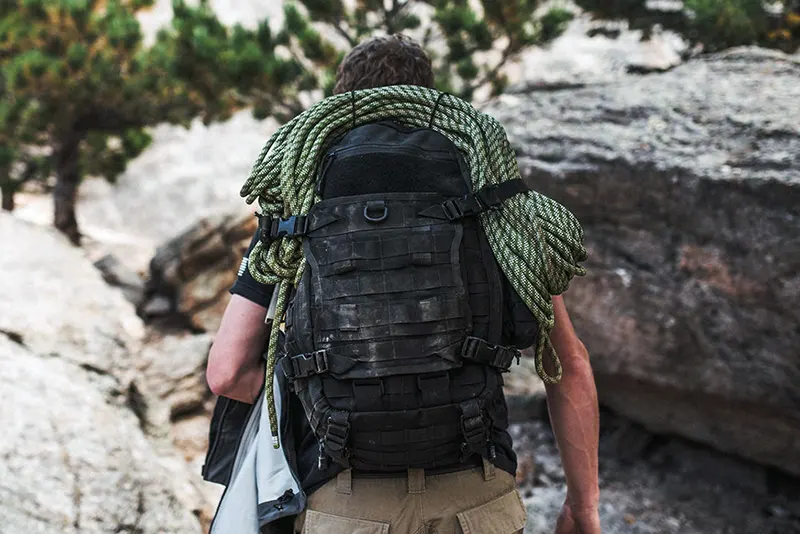
Preparing for a Disaster That May Last for Months
While survivalists practice a self-sufficient lifestyle to last long-term, preppers prepare for a disaster that may last for months.
With the hopes of coming back to their normal life. In other words, preppers think short-term, as they may run out of supplies.
American and Britain’s doomsday preppers have significantly increased throughout the years. With the COVID pandemic affecting the whole world in 2020, more and more people opt to practice a prepper lifestyle.
What’s the Difference between a Survivalist and Prepper?
The difference between a survivalist and a prepper is in how they execute their plans. In a nutshell, survivalism is a self-reliant lifestyle, while being a prepper is a short-term lifeline. Both terms are used interchangeably. Not knowingly, a survivalist and a prepper are entirely different.
Although both survivalists and preppers have the same goal of surviving doomsday and catastrophes, they differ in their preparedness plans and how they execute them. To summarize the difference between the two, here’s a table to easily understand their differences.
| Survivalist | Prepper |
| Long-term survival | Stockpiling supplies that will last for months |
| Less is better | More is better |
| Willing to live with the resources available even when it’s uncomfortable | Wants to live a comfortable life as much as possible |
| Has wilderness survival skills | Focuses on preparing and stocking supplies |
| Self-reliant | Reliant on the gathered supplies |
| Can hunt their own food | Relies on food stocked |
| Prefer to survive alone | Prefers to be a part of a community |
Although both survivalists and preppers are different, it doesn’t mean a person can be both, right? With the goal in mind of trying to survive a catastrophe, preppers are most likely to think like a survivalist in case their supplies run out.
As their supplies are running out, some preppers would switch into survival mode. This means they will resort to growing crops, hunting for food, in short living with what’s available in their surroundings. At the end of the day, the goal is to survive and prolong life.
What Are the Similarities?
The similarity between a survivalist and a prepper is their goal. As mentioned, both preppers and survivalists aim to survive catastrophes like natural disasters, imminent apocalyptic destruction, economic collapse, and nuclear war.
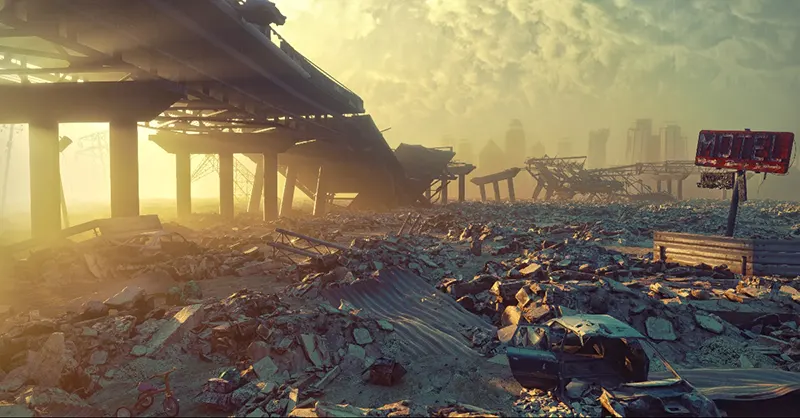
In short, both individuals are proactive thinkers and preparation is the key.
Which Is Better? A Survivalist or Prepper?
The answer depends on your personal preference and preparedness skills. As you’ve understood the difference between a survivalist and a prepper, you’ll realize what suits more to your personal preference. However, there are pros and cons to being a survivalist and prepper. Here are the pros and cons:
Survivalist Pros
- Able to survive long-term
- Able to survive regardless of their location
- Self-reliant and independent
- Does not require much money on investing in supplies and equipment
- Are skillful and more knowledgeable about wilderness survival
- Survivalist strategies come in handy on outdoor trips
Survivalist Cons
- Limited food resources
- Prone to malnutrition and dehydration
- Prone to sickness
- Needs to be more hands-on
Prepper Pros
- Have more supplies readily available
- Aims to live comfortably
Prepper Cons
- Reliant on gathered supplies
- Short-term survival
- Long-term preparation on stockpiling food and supply
- Lacks the survival skills and knowledge
- Needs more money to invest in supplies and equipment
- Preppers stock food and supplies for only a certain period
- Stays in one place only where their supplies are stocked
- Preppers hope that things will go back to normal before their supplies run out
At the end of the day, your only goal is to survive. Why not be both? If you have the funds to stock food or extra money to build a bunker, then why not? If you’ve got extra time on your hands, also teach yourself survivalist skills such as building fire, growing plants, and hunting for food.
If you’re not sure how to start embracing a survivalist life, you can always join a survivalist community and join in their activities to experience firsthand what it’s like to live within your means. Being a prepper and survivalist at the same time is a better path to take.
Concluding Thoughts
Now that you understand the difference between a survivalist and a prepper, have you answered the question what kind you will be? Are you more of the prepper kind or the survivalist kind? Regardless of your preference, the bottom line of this all is to be prepared for whatever may come.
No one knows when a natural disaster may strike or an apocalyptic event may occur. Being both a prepper and survivalist doesn’t hurt. Plus, you’ll acquire skills that will come in handy in the future. All you want is for your family to be safe and will survive any catastrophe.

I’m sorry, but what BS this is.
Look at any old American Survival Guide or Survive magazine and you see that survivalists do stockpile food and gear.
The only difference in Survivalist vs. Preppers is the name. People got scared when the govt said survivalists were all nazi’s and wanted to overthrow the govt.
Now they say the same about Prepper’s.
There were always different levels of Survivalists and how they prepared.
I should know, being doing this since 1978.